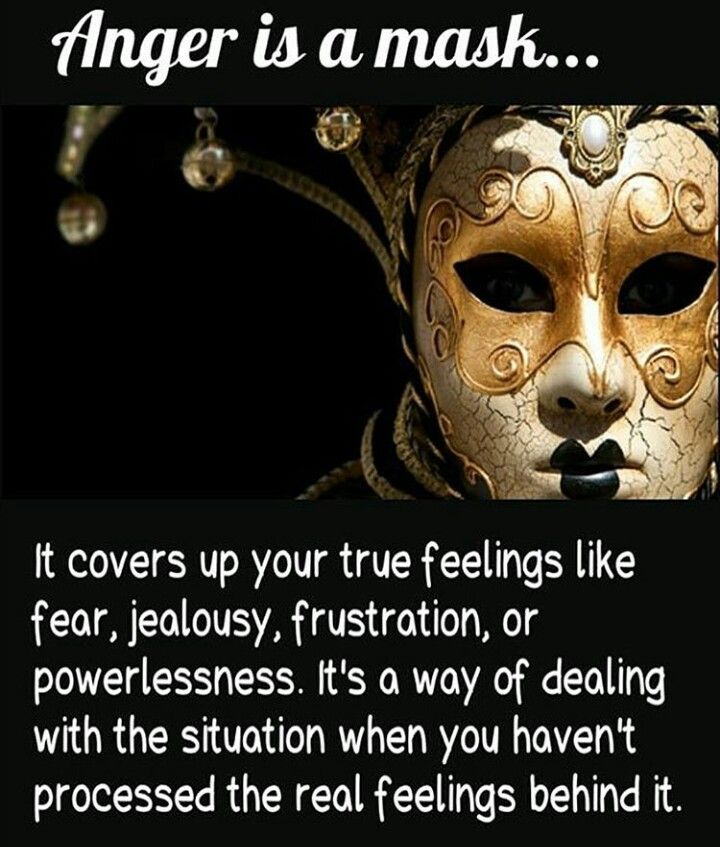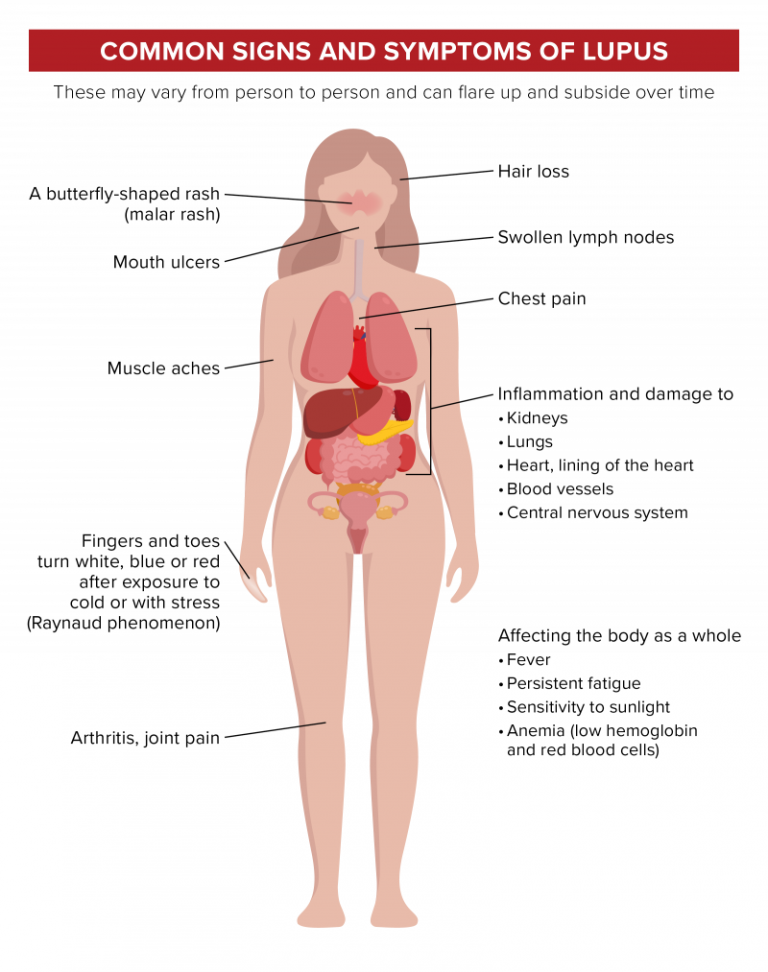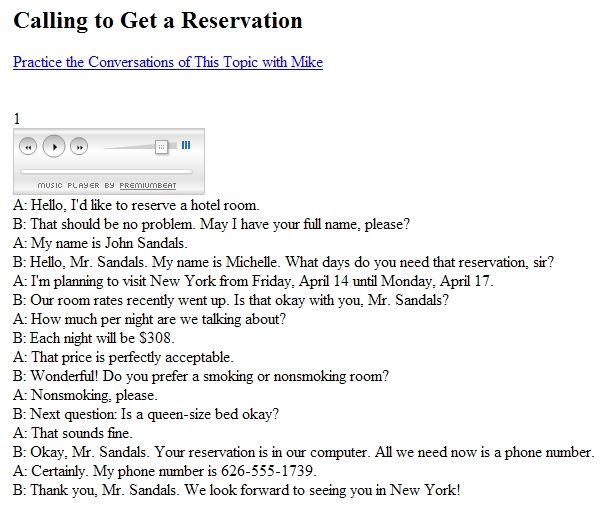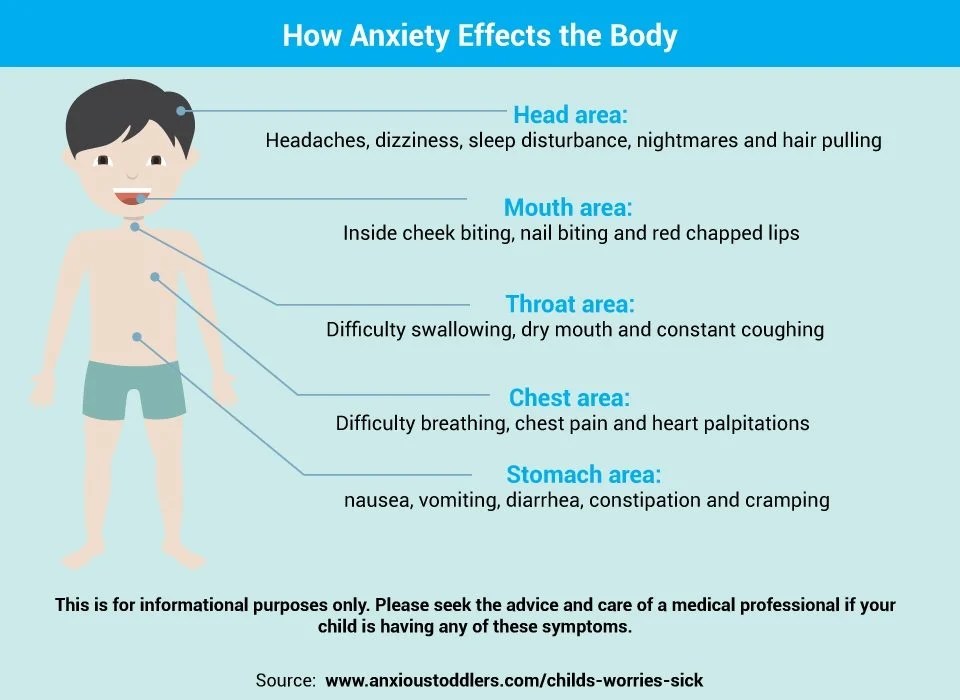Stop being angry all the time
Why am I so angry all the time for no reason?
Do you ever get so angry that you can feel it bubbling up inside you? Or maybe when you’re in a rage it washes over you like a tsunami, leaving you feeling helpless and out of control?
We all experience anger every now and then. And that’s fine – it’s a completely natural emotion. Sometimes a bit of anger can actually be helpful: it can give us the courage to stand up for ourselves, protect us from immediate danger and fuel us to campaign against societal injustice.
But there’s a difference between short-term anger and overwhelming rage. If your anger often spirals out of control it can interfere with your day-to-day life. And it can cause real problems with your relationships, work – and in some cases, even the law.
You may have a short fuse and lash out at your partner, even though they’re only trying to help. Or maybe when you’re livid you have an overwhelming urge to punch holes in walls and break things.
You may even feel physical changes. Clenched fists, a tense jaw, rapid heart palpitations… it can be an overwhelming experience.
Anger is there to protect us. But, more often than not, acting on its urges won’t do us any good. If anything, the screaming matches and the outbursts wreak havoc with our friendships and relationships – and, ultimately, we end up hurting ourselves too.
If you have an anger problem, it’s easy to feel like you’re at its mercy. But remember: you have the power to change. There are ways you can learn to tune into your anger and find the root cause behind it. And with time and the right coping techniques, you can even overcome it.
Why am I angry?If you’re feeling angry for what seems like no apparent reason, can’t shake your frustration at the world or are snapping at people more often, know this: you’re not alone.
In a recent survey, the Mental Health Foundation found that 32% of people had a close friend or family member who had trouble controlling their anger. Meanwhile, 28% of people said they were worried about how angry they feel.
Meanwhile, 28% of people said they were worried about how angry they feel.
But what causes anger? Here are just a few common triggers:
- Being unfairly treated and feeling powerless to change it
- Feeling threatened or attacked
- Feeling like your feelings or possessions aren’t being taken seriously
- Physical threats
- Lying
- Violation of your personal space
- Relationship disputes
How you react to these triggers depends on lots of factors:
- Your current situation – If you’re juggling lots of problems or stresses, you may find yourself getting angrier than usual, or getting angry at unrelated things.
- Your family history – You may have learnt unhealthy coping techniques from the adults around you growing up. Maybe a parent punished you for expressing anger as a child, so you suppressed the emotion and it’s now it’s harder to control. Or perhaps you witnessed an adult’s aggression and now fear your own anger.

- Your past – People who’ve experienced traumatic or frightening events (e.g. violence, abuse or terror) may develop Post-Traumatic Stress Disorder (PTSD) and can be prone to angry outbursts.
- Substances – If you take substances like drugs and alcohol you may act more aggressively than usual when under the influence.
We all get angry from time to time. But here are some telltale signs that your anger may be a serious problem:
- It affects your relationships and social life
- You feel that you have to hide or hold in your anger
- You become physically violent when you’re angry
- You feel unable to control your anger
- You threaten other people or their property
- You argue with others frequently
- You feel compelled to take part in violent, reckless or impulsive activities e.g. driving recklessly
- You constantly focus on negative experiences
- You feel impatient, irritated or hostile
Take a break
If you’re hot-tempered, your anger can feel like a volcano that’s ready to erupt at any minute. So the first step is to stop yourself and take a step back. You might even want to remove yourself from the situation. This doesn’t mean storming out and slamming doors. Instead quietly remove yourself from the problem or person, take a deep breath and count to 10. This gives you time to cool down, so you can be more level-headed.
So the first step is to stop yourself and take a step back. You might even want to remove yourself from the situation. This doesn’t mean storming out and slamming doors. Instead quietly remove yourself from the problem or person, take a deep breath and count to 10. This gives you time to cool down, so you can be more level-headed.
Find the root cause
Anger is often dubbed a ‘masking emotion’. That’s because, more often than not, other vulnerable feelings are hiding just below the surface. We may be dealing with fear, panic or shame – but instead of admitting these emotions, we get angry.
Try and identify if there are any other vulnerable feelings you’re experiencing and pinpoint any future triggers. It could be that a friend made a rude remark and you’re feeling embarrassed or hurt. Or perhaps a colleague interrupted you during a presentation and your self-esteem took a hit. Anger tends to be a secondary response to feelings of shame and vulnerability so be kind to yourself and tap into how you’re feeling.
Change your thinking
“It’s not fair”, “You always do that”, “You never listen to me.” Sound familiar? It’s easy to get stuck in an unhelpful loop, mulling over the same negative thoughts. You may catastrophize and always think the worst-case scenario or perhaps you only see every situation in black and white. It’s easy to fall into these thinking traps, and people with anger issues may stumble into them more often than most.
To tackle this, take time to identify any unhelpful thinking patterns you may have. You can often spot these because they use extreme language like “always”, “never”, “should” and “shouldn’t”.
Next, you’ll want to interrogate these thoughts. Ask yourself:
- “What is the evidence for and against this thought?”
- “Could there be another explanation?”
- “What would other people say?”
- “Am I jumping to conclusions?”
By taking a step back you might be able to see the wider picture. Maybe you misinterpreted that mean text your friend sent you. Or perhaps they’re going through a rough patch, which explains why they’ve been acting a certain way. Looking at a situation from a fresh perspective could be all you need to extinguish your anger.
Maybe you misinterpreted that mean text your friend sent you. Or perhaps they’re going through a rough patch, which explains why they’ve been acting a certain way. Looking at a situation from a fresh perspective could be all you need to extinguish your anger.
Tune into your body
Ever get red in the face or feel your heart racing when you’re frustrated? Or maybe you know you’re fuming when you feel a tightness in your jaw. Our emotions are anchored in the body – so it’s no surprise that anger manifests physically too.
Next time you’re angry, take time to soothe your body. Relax your posture, and if your teeth or fists are clenched, try to unclench them. You could even try splashing some cold water on your face if you feel hot.
Besides this, it may also be helpful to try a technique called Progressive Muscle Relaxation. This is where you slowly tense and relax each muscle group, which can help release stored up tension in the body. If you need a helping hand, tune into the Progressive Muscle Relaxation of Self-Care and we’ll help you get started.
Move it
Channelling your anger into exercises like kickboxing or running can help you release any pent up energy. And, better yet, it also releases endorphins, the feel-good hormone that helps us relax.
Breathe
“Over breathing” is common when we’re angry. This is when you automatically breathe in more than you breathe out. You might take quick shallow breaths or big “gulps” of air, and this can naturally exacerbate the physical symptoms of anger.
With this in mind, it may be helpful to practice deep breathing the next time you feel like you’re going to lose your temper. Breathe out for longer than you breathe in, and as you exhale, try to relax. Deep breathing not only readdresses this breath imbalance but it also helps to stimulate the parasympathetic system, which provides a sense of calm.
Get creative
Pouring your emotions into a creative outlet like painting, writing or singing may help you redirect your anger and make sense of it.
Talk about how you’re feeling
Offloading to a friend might help you get perspective on the situation. But, if you’d rather speak to someone impartial, therapy could be a good place to start. Not only will it teach you coping techniques to help you cool off, but it also provides the safe space you need to start unravelling where your anger issues stem from.
Let’s face it: dealing with anger issues is really tough. Sometimes, it feels like no matter how hard we try, we can’t extinguish the fiery rage that burns within us when someone pushes in the front of us in a queue or our boss asks us to work late again.
But you can do it.
We inevitably all lose our cool from time to time, but just remember how much you inevitably regret it when you blurt out that snide remark or end up in a screaming match.
Recognising that you have an anger problem is the first and most important step.
Now keep going.
Why Am I Always Angry? Causes, Signs, and More I Psych Central
Anger is a natural human emotion, but when it feels constant and unrelenting, it may be a sign of something more such as stress or anxiety.
It’s OK to get angry. Life doesn’t always happen in the way you want or need, and anger is a natural response to feeling wronged.
In fact, anger is considered one of the basic forms of emotion, critical to survival. Anger can kick off your biological threat responses, activating everything from your cardiovascular system to your neurological system.
But anger that is constant, excessive, or uncontrollable may go beyond levels that are beneficial and instead hinder you in day-to-day functioning.
There are many reasons you might experience anger in the moment, but anger all the time might have underlying causes.
On-going oppression and ancestral trauma
Tavi Hawn, a licensed clinical social worker from Baltimore, Maryland, explains that constant anger can be a result of socioeconomic factors, particularly for marginalized groups.
“Members of groups that have historically been subjected to oppression often experience higher levels of daily stress related to systemic factors, such as poverty, health conditions, discrimination, and even hate crimes,” they note. “All these daily experiences combined can lead to feeling very angry as a response.”
“All these daily experiences combined can lead to feeling very angry as a response.”
Grief
Hawn also indicates that active, compounded, or unresolved grief can contribute to ongoing feelings of anger.
“Our society today, with a need to be working constantly to make a living, doesn’t allow space and time for many people to grieve,” they say. “Having to keep on moving without a break to process a loss, without others around you acknowledging the loss, can create unresolved grief which can cause constant feelings of anger.”
Expectations
While there may be many underlying causes that contribute to anger, Dr. Juli Kramer, a counseling psychologist specializing in Chinese medicine, indicates that persistent anger can often be traced back to expectations.
“Holding expectations is a dominant source of anger from my counseling experience,” she says. “Sometimes the expectations are realistic, but most often not. People feel a constant ‘let down’ when those expectations aren’t met. ”
”
Stress
Joni Ogle, a licensed clinical social worker from Los Angeles, lists several everyday reasons that can make you feel constantly angry when they happen over long periods of time.
These chronic stressors can include:
- feeling not in control or helpless
- being made to feel inferior
- not being listened to
- being disrespected
- feeling threatened
“But if you find yourself angry almost always, it might be worth considering whether there are other underlying issues at play,” she says.
Anger can be passive, assertive, or aggressive. It’s not always violent, and it doesn’t have to result in harm.
Everyone experiences and expresses anger in their own way. Common signs that you may be feeling anger include:
- elevated body temperature
- sweating
- rapid heartbeat
- muscle tension
- headache
- flushed skin
- clenched jaw
- chest constriction
- pacing
- yelling
- arguing
- sarcasm
- cursing
- physical expression (e.
 g., throwing or breaking objects, physical violence)
g., throwing or breaking objects, physical violence)
Signs of anger may be accompanied by emotions such as:
- humiliation
- disrespect
- insecurity
- rejection
- jealousy
- abandonment
- fear
You may also notice your thoughts move toward revenge, seeking justice, or wanting atonement.
Unrelenting anger can sometimes be a sign of a mental health condition.
While challenges with emotional regulation can be a symptom of several conditions, Ogle indicates that anger can often relate to:
- anxiety disorders
- depression
- bipolar disorder
- personality disorders
- substance use disorders
Conduct disorders, such as intermittent explosive disorder (IED) and oppositional defiant disorder (ODD), may also feature traits of anger and aggression.
“If you’re living with chronic anger, it’s important to talk with a mental health professional who can help you determine whether or not you have a mental health condition that might be contributing to your anger,” she says.
While it’s natural to experience anger, uncontrolled anger can have a negative impact on your life.
“People can start to avoid us because we’re not pleasant to be around or because our anger can be stressful to others,” Hawn states. “It can make it harder to compromise on things, which is key in relationships. Explosive anger can be scary to those around us and even be tied to abusive behaviors. It can end relationships altogether.”
In addition to social ramifications, uncontrolled anger can affect your physical and mental well-being. According to research from 2010, it may contribute to health challenges such as cardiovascular complications, diabetes, and eating disorders.
Understanding “why am I so angry?” is just one piece of the puzzle. In addition to finding where that emotion comes from, relief may require coping strategies.
Discovering the real emotion
Hawn recommends reflecting back when you realize you’re stuck in angry feelings.
They suggest, “Ask yourself: Is there another emotion that happened right before the anger? If so, what led to that emotion? How can I feel and honor that emotion? If not, what message is my anger giving me? Maybe a boundary was crossed, maybe I saw someone being mistreated or hurt and know it was unjust, etc. ”
”
Stepping away
If you’re always feeling angry during certain events or around certain people, it’s OK to step away.
Kramer suggests that removing yourself from the situation may be required when you’re angry. “Literally, they [should] excuse themselves and walk away,” Kramer says. “Easy to say, hard to do. Having an ally, someone with whom they have a code word or cues to help them know when to leave is helpful.”
Once you’ve stepped away, Kramer suggests box breathing:
- inhale for 4 to 7 counts
- hold your breath for 4 to 7 counts
- exhale for 4 to 7 counts
- repeat until the anger is diminished
Practicing relaxation techniques
“There are several relaxation techniques that can help you calm down when you’re feeling angry,” says Ogle. “Try things such as yoga, meditation, or deep breathing exercises. This is a good start to learning how to control your anger overall.”
Lifestyle changes and outlets
Ogle indicates that some lifestyle changes can help you manage anger.
“Eating well, getting enough sleep, and exercising regularly can all help to improve your mood and reduce stress levels,” she says.
Exercise, art, recreational hobbies, and sports can also be used as outlets when you find yourself wondering, “why am I so angry?”
Support
Sometimes anger requires the support and insight of a mental health professional.
Working with a therapist can help you uncover underlying causes of anger and can help you explore coping strategies that work for you.
You may also benefit from joining support groups, online or in person, where anger management strategies can be discussed in an empathetic setting.
Yes. Venting can be OK.
“It’s important to have an outlet for your anger, whether that means talking with a friend or writing in a journal,” says Ogle. “Venting allows you to express your anger in a safe and controlled way, without hurting yourself or someone else.”
But venting can be unhelpful if it’s used to lash out at or harm others, makes you feel angrier, or starts to happen as a regular method of expression.
Asking yourself, “why am I so angry” can be the first clue that your anger has stuck around longer than it should.
While there are many reasons for anger to become a constant in your life, socioeconomic factors, chronic stressors, and underlying mental health conditions may all play a role.
Long-term anger can negatively impact your mental and physical well-being, but coping strategies and support from a mental health professional can help.
The most effective techniques to help you stop being angry
31131
17
2
Updated: June 20, 2022
Updated 20.06
Anger is neither good nor bad, but a basic feeling. To some extent, it is always present in every person, it helps to achieve what is needed. Anger has positive and negative aspects, but in any case, you need to know how to manage anger, what to do to stop being angry.
Article content
- How anger manifests itself
- The psychology of anger or why people get angry
- The Benefits of Anger
- How to stop being angry and not get annoyed
- How to become kinder
- FAQ
- Expert opinion
How anger manifests itself
When a person is angry, the adrenal glands actively produce adrenaline and norepinephrine. These neurotransmitters activate the work of the autonomic nervous system, affect muscle tone and the state of blood vessels.
These neurotransmitters activate the work of the autonomic nervous system, affect muscle tone and the state of blood vessels.
Anger can be attributed to innate skills. But the manifestations of anger in adulthood are influenced by the behavior of other people, external circumstances.
What happens in the body when a person is angry:
- blood vessels constrict;
- the heart rate increases;
- muscle tone increases;
- the exchange process is accelerated;
- the level of glucose in the blood rises;
- decreased susceptibility to pain;
- consciousness narrows - a person does not react to extraneous sounds and movements, all attention is focused only on the source of the threat;
- due to the excitation of the central nervous system, the speed of reactions increases, there is a surge of vivacity.
A person in anger clenches his fists and jaw, it is difficult for him to sit still, he is worried about a headache, discomfort in the region of the heart.
Important! Responsibility for an angry reaction always lies with the person himself. No one can force another person to be angry.
Psychology of anger or why people get angry
Anger is a primary emotion that appeared as a result of evolution. This is a belligerent but necessary response to stress – fight or flight. It starts in the amygdala region of the brain, which is formed at the 8th month of fetal development.
Reasons for anger:
- a sense of danger, the inability to predict the development of the situation, a reaction to a threat to the established order;
- no or limited choice;
- chronic stress;
- very strong emotional shock;
- the use of alcohol, drugs - the addict may get angry during the withdrawal syndrome due to the lack of a new dose;
- disrespect from others;
- the occurrence of obstacles on the way to the goal;
- unsatisfied desires;
- violation of personal boundaries;
- anger at life and people is a contagious feeling, the ability to adopt the positive and negative emotions of others refers to manifestations of empathy;
- anger often masks other emotions - guilt, fear, shame, envy, pain, insecurity;
- anger can be a manifestation of psychological trauma, internal conflict;
- an aggressive or passive response to a problem.

Genes influence the level of anger. Some of them increase the production of stress hormones. Others reduce the activity of gamma-aminobutyric acids, which inhibit the neurotransmitters of the central nervous system, reduce the activity of nerve impulses.
In psychology, there is such a thing as anger regulation disorder - these are inadequate-evil reactions. Uncontrolled attacks of aggression can be a manifestation of schizophrenia or depression, psychopathy, sociopathy.
The ability to control anger or communicate properly with an angry person are essential skills. If you cannot control your emotions, or take the manifestation of someone else's aggression too close to your heart, contact our psychologists. Specialists will conduct a remote consultation at any convenient time. They will teach effective ways to splash out anger, help to understand the causes of negative emotions.
The benefits of anger
Anger is considered a negative, wrong feeling. People constantly try to fight it, many deny that they can be angry with themselves, others or the situation. But not everything is so bad, there are many positive aspects in anger.
People constantly try to fight it, many deny that they can be angry with themselves, others or the situation. But not everything is so bad, there are many positive aspects in anger.
Positive aspects of irritability:
- A resource that activates energy production. An evil person is strong, determined, courageous. He is not afraid to move forward, can easily adapt to new circumstances.
- Helps you achieve your goals.
- Needed to establish and protect personal boundaries.
- One and manifestations of sincerity, trust. Showing anger is considered unacceptable. If a person expresses anger, it means that he opens up to the interlocutor.
Pay attention! Anger is a good helper in the fight against financial, love, food and other addictions.
How to stop being angry and not get irritated
You need to be able to control anger and be able to throw it out in time, but without negative consequences for others. But most people do not know how to live properly, to deal with anger. They prefer to suppress, ignore one of the basic emotions. Apathy, depression, psychosomatic disorders - all these problems arise against the background of repressed anger.
But most people do not know how to live properly, to deal with anger. They prefer to suppress, ignore one of the basic emotions. Apathy, depression, psychosomatic disorders - all these problems arise against the background of repressed anger.
Anger suppression is a learned pattern of behavior that comes from childhood. Parents constantly tell their children not to be angry, it's bad. The reasons for this behavior of parents can be different. Destructive upbringing, fear of condemnation of others for the violent behavior of the child. The expression of anger is a manifestation of the child's personal boundaries, which often frightens adults.
How to calm anger - advice from a psychologist:
- Say to yourself or out loud once: "I'm angry." Take 3 deep breaths in and out with your belly. Slowly count to 10. Repeat a full circle until the anger subsides.
- Take a look around. Count all white or round objects.
- Focus on details.
 Turn on the music and listen carefully to the voice, the smallest sounds. Or slowly feel the object, pronounce all its characteristics.
Turn on the music and listen carefully to the voice, the smallest sounds. Or slowly feel the object, pronounce all its characteristics. - Try to draw your anger. It can be strokes, lines, a chaotic pattern. See what your anger looks like. Think about what it symbolizes for you - resentment, emptiness. Think about what you can replace or fill.
- Learn meditation and self-regulation techniques. If it is difficult to cope with bouts of uncontrollable anger alone, sign up for a consultation with a psychologist. The specialist will help to correct the ingrained patterns of behavior, to eliminate their negative consequences.
- Write a list of the negative effects of anger—discord in relationships, loneliness, problems at work, various illnesses. Post the list in all prominent places, always remember the risks when you start to get angry.
- Ask loved ones to take pictures of you at the moment of angry detente. You won't like this photo. Remind yourself of this vivid example of your destructive alternative personality every time you have outbursts of anger.

- Develop a sense of humor and optimism. These qualities help to look at life easier, to stop being annoyed at the slightest provocation.
- Avoid overwork. Always find ways to take a break from your daily routine. Spend your leisure time in a variety of ways, find new hobbies. As soon as an attack of irritation occurs, try to immediately do what brings you pleasure.
- Don't be afraid of change. If everything is annoying at work, change it. Yes, it's stressful, but sometimes it's the only way to stop being angry all the time. If a particular person is annoying, stop communicating with him or reduce communication to a minimum.
Important! Learn to notice the process of the emergence of anger. This is essential to let off steam. This should always be done without exception. Otherwise, the suppressed emotion will redirect energy to the internal organs, gain a foothold in muscle memory, and chronic pain of unknown origin occurs.
How to become kinder
In order not to be covered by strong anger, you need to change the negative perception of the world to a positive one.
What can be done:
- Stop perceiving others as a source of threat, humiliation, or bullying. The reason for anger lies in you, and not in the outside world, so adequately assess the appropriateness of your actions and words. Do not start and do not start to get angry if you are corrected, criticized, if people's actions differ from your expectations, not all “I want” can be realized.
- Learn to empathize. The ability to put yourself in the shoes of others, understand someone else's point of view and feelings is a great way to stop getting angry over trifles.
- Choose a person who inspires you. If angry, imagine how he would behave in this situation.
- Smile. Smiling improves not only your mood, but also the mood of others, affects feelings and thoughts.
- We must learn to strain and relax alternately all the muscles in the body. Such relaxation helps to get rid of negativity in thoughts and body.
- Learn to actively express your feelings.
 Silently getting angry or showing aggression are non-constructive ways of communication.
Silently getting angry or showing aggression are non-constructive ways of communication.
Tip! To get less angry, you need to sleep 7-8 hours every night. Lack of sleep is one of the reasons for the inability to control emotions.
FAQ
I get angry often. This is fine?
+
Being angry at a person is a normal, one of the primary human emotions. It helps to move forward towards the intended goal, is one of the defensive reactions. But the inability to manage anger is bad. To learn how to manage anger, you can independently master some practices. Or turn to a psychologist, which is much more effective and faster.
Should anger be suppressed or should it be vented?
+
Anger is considered a negative emotion. People often, wanting to look in the eyes of others friendly, cultured and pleasant to communicate, restrain their anger. But any emotion is an energy that, according to the laws of physics, cannot simply dissolve and disappear without a trace. It can be converted into other energy or transfer the discharge to another energy consumer. To avoid psychosomatic illnesses and problems in communication, you need to release anger in environmentally friendly ways that are harmless to yourself and other people.
But any emotion is an energy that, according to the laws of physics, cannot simply dissolve and disappear without a trace. It can be converted into other energy or transfer the discharge to another energy consumer. To avoid psychosomatic illnesses and problems in communication, you need to release anger in environmentally friendly ways that are harmless to yourself and other people.
How to release anger?
+
The reasons for anger may be different, but in any case, you need to quickly get rid of this emotion. It is necessary to keep a diary in which to record bodily reactions, feelings, triggers that provoke the appearance of feelings of anger. Already when filling out the diary, the charge of aggression will decrease. You can write a letter to the offender, not embarrassed in expressions. Beat a pillow or box with an imaginary opponent, tear up a newspaper. Get a special glass for anger, in which to scream if you start to boil. Any physical activity or loud performance of a song helps a lot. Choose any method, depending on your preferences and external circumstances.
Any physical activity or loud performance of a song helps a lot. Choose any method, depending on your preferences and external circumstances.
Expert opinion
Getting angry is okay. It is much more dangerous to restrain, suppress the feeling of anger. Suppression turns into uncontrolled outbursts of anger, which is dangerous for social life. People who do not know how to cope with anger develop neurotic disorders, problems with sleep and appetite, develop arrhythmia, hypertension. Disturbed by frequent headaches, muscle spasms, neuralgia, mimic muscles are supported. To avoid all these negative consequences, you need to stop being quick-tempered and irritable. The fight against anger is a serious work on oneself, a thorough analysis of the causes of increased anger. Therefore, it is better to go through it with an experienced specialist.
We publish only verified information
Article author
Monakhova Albina Petrovna clinical psychologist
Experience 17 years
Consultations 1439
Articles 263
Specialist in clinical psychology. Help in finding tools for self-realization, working out beliefs, fears and anxieties. Work with self-attitude, internal boundaries, understanding of interaction with society through conscious personal changes.
Help in finding tools for self-realization, working out beliefs, fears and anxieties. Work with self-attitude, internal boundaries, understanding of interaction with society through conscious personal changes.
- 2007 - 2008 MUS Children's polyclinic No. 4 - teacher psychologist
- 2008 - 2009Healthy Country LLC - Clinical Psychologist
- 2009 - 2021 Republican Narcological Dispensary - psychologist
- 2012 - 2013 Occupational medicine - psychologist
- 2013 - 2015 LLC Vozrozhdenie - psychologist
- 2019 to present Teledoctor24 LLC - psychologist
Sources
- ... Ilse Sand. Compass of emotions, 100 pages, 2016
- ... Lisa Barrett.
 How emotions are born, 750 pp. MYTH, 2018
How emotions are born, 750 pp. MYTH, 2018 - ... Larry Senn. Mood lift. Learn to manage your feelings and emotions, 2018
Share:
Category: Psychology
About health Pregnancy and childbirth About children healthy lifestyle Psychology Neurology Gastroenterology Personal care Medicines and dietary supplementsPrevious article
Professional Development Crisis
Next article
Emotional Seesaw in Relationships
Other related articles
Monakhova Albina Petrovna
22. 06
06
How to get rid of boredom
Psychology
Monakhova Albina Petrovna
15.04
Demonstrative behavior in children
Psychology
Menshikova Maria Viktorovna
18.01
Why is polyhydramnios dangerous during pregnancy?
Pregnancy and childbirth
5 reasons to stop comparing yourself to other people
Health
© Daiga Ellaby/Unsplash
Author Uliana Smirnova
October 15, 2019
Constant comparison of oneself with others becomes first a habit, then a way of life. According to psychologists, this is not only useless, but also harmful. Find out how to stop comparing yourself to others and start enjoying life.
Find out how to stop comparing yourself to others and start enjoying life.
Neighbors, friends, acquaintances, colleagues, former classmates or fellow students become objects for comparison. But there are also social networks and magazines that talk about the luxurious life of celebrities and stars.
The “be as good as others” mindset is a threat to a peaceful life and one of the easiest ways to feel miserable. Comparing ourselves with someone, we experience irritation, resentment, dissatisfaction with ourselves and life. As a result, we lose energy and strength that could be invested in our development.
Advertising on RBC www.adv.rbc.ru
Almost any event related to family, career or personal appearance, most of us pass through the prism of comparison with someone else. Oil is added to the fire by social networks, advertising and glossy magazines that demonstrate the “ideal life”. Such comparisons can be helpful: sometimes other people's examples inspire and motivate. And yet most often it works in the opposite direction. The more we compare ourselves to others, the more negative emotions we attract into our lives.
And yet most often it works in the opposite direction. The more we compare ourselves to others, the more negative emotions we attract into our lives.
Each of us is beautiful in our own way and imperfect in our own way. All our abilities and qualities add up to a unique and unique picture: this is what makes us us. Don't think that someday you will be the "perfect person". There will always be those who earn more and look better. Next time, instead of comparing yourself to more successful girlfriends or Instagram celebrities, try to evaluate yourself now and a year ago. Direct energy and strength to self-improvement.
Social networks are an illusory world. It is important to understand that people publish photos of only the most successful and happy moments, and leave their defeats and failures behind the scenes. Thanks to this, one gets the feeling that everyone around has a very rich and vibrant life. Looking at cheerful pictures of friends and idols, many feel envy and resentment. In addition, we begin to focus on our shortcomings and forget about the areas in which we excel. As a result, our self-esteem suffers.
In addition, we begin to focus on our shortcomings and forget about the areas in which we excel. As a result, our self-esteem suffers.
It is more difficult for an emotionally unstable person to resist the influence of social networks. And when we worry about the fact that we lack something that others have, the body produces a “stress hormone” - cortisol. Its excess suppresses the immune system, increases fatigue, causes insomnia, irritability and depression. If you are overwhelmed by negative thoughts, take a piece of paper and write down at least 100 of your achievements that you are proud of. Hang it in a prominent place and read it often.
© Tim Gouw/Unsplash
The human inclination to dream about what others have is one of the main causes of overspending. It makes us jealous, angry at ourselves, and wanting things we don't really need. “They live richer than us”, “They go on vacation more often”, “Their car is more beautiful and more comfortable than ours” - looking at the purchases of friends and acquaintances, we strive to get the same thing for ourselves. As a result, our values and life are controlled not by ourselves, but by someone from outside. But not always what suits one person suits us.
As a result, our values and life are controlled not by ourselves, but by someone from outside. But not always what suits one person suits us.
Living in a consumer society, we are constantly influenced by advertising: in order to become more successful and happier, we must buy the things that successful and happy people have. Many of these purchases turn out to be useless and provide only a temporary feeling of happiness. So instead of daydreaming about new things, start re-evaluating your goals. Think about what you want to change and how to achieve it. Focus on small successes and start unlocking your potential.
Comparisons with others are rarely useful: they do not add value, meaning, or joy to our lives. If you constantly want what others have, it will never be enough. This is an endless cycle that does not bring happiness: we will always want more - no matter how many clothes, fashion accessories and expensive cars we buy. You can't live by someone else's standards. Concentrate more often on your own feelings and all the positive and good that is in your life.
Concentrate more often on your own feelings and all the positive and good that is in your life.
When you catch yourself thinking that you are drawing a parallel between yourself and others, stop and distract yourself. In this case, you do not need to scold yourself or invent punishment. Instead, turn your attention to your own achievements and remember your strengths. Make it a rule to do this regularly. Over time, you will notice progress and begin to understand that it is much more important to be yourself. By the way, learning to enjoy the success of other people is another way to become happier.
© Lawton Cook/Usplash
Comparing ourselves to others, we forget about our own interests and begin to live according to other people's settings. As a result, by constantly looking back at someone, we destroy our own individuality and devalue achievements that we once considered significant. According to psychologists, one of the reasons for this phenomenon is toxic parental attitudes, such as “please others” or “be the best.














